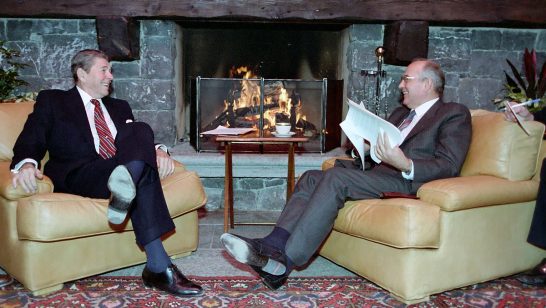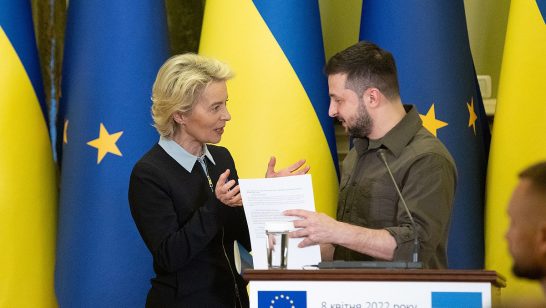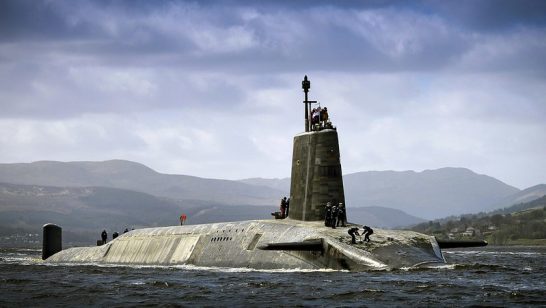
‘Global Britain’ – a foreign policy framework or a ‘grand strategy’, first mentioned by the then Foreign Secretary Boris Johnson in 2016, has been on the radar for many policy experts since its inception. Now, with Liz Truss as Prime Minister, the question has arisen whether ‘Global Britain’ will remain the UK’s foreign policy framework.
In August 2021, my ELN commentary argued that ‘Global Britain’ was a highly personalised and subjective idea, based on Johnson’s perceptions of the world and his admiration of Winston Churchill. I concluded that the next prime minister would be ‘likely to pursue her or his own political ambitions and provide us with a slightly different, her or his ‘Global Britain’.’
A new leader brings personal biases and preferences to the table, and drives foreign policy in a direction that is always unique, but within the limitations of the existing institutional framework. During the Conservative leadership race, Truss pledged to modify Johnson’s version of ‘Global Britain’ – most notably she claimed she would “update” the 2021 Integrated Review and increase the defence budget to 3% of GDP by 2030.
Without Johnson, or without ‘the Churchill Factor’ in ‘Global Britain’, a change in every foreign policy aspect can be expected. The key structural reason for the transformation will be the new government’s focus on domestic issues, primarily the cost of living crisis, financial instability, and lack of economic growth (0% growth in 2023 according to OECD forecasts). In other words, in the current turbulent economic and political conditions, Britain cannot afford to be present in every part of the world and be truly ‘global’. Instead, with Truss, “Global Britain” is likely to turn into “Regional Britain” to address new kinds of external and internal factors.
There is already a gradual shift in the focus of the UK’s foreign policy, back to the European continent and to hard power capabilities. It is primarily driven by the war in Ukraine. With Truss, the UK, dubbed a ‘soft power superpower’ by the 2021 Integrated Review, will significantly increase its defence spending: it is expected to reach £157bn by 2030, the biggest rise since the 1950s. Truss has also argued for doubling down on military supplies for Kyiv, thus reaffirming the country’s key role in the European security architecture. Moreover, Truss’ idea of Britain being part of a ‘network of liberty’ provides a framework for both soft and hard power projection in the region.
The desire to support Ukraine and Moldova consolidates the whole of Europe by bringing together EU member states, which have agreed to accept these countries’ candidacy for the EU, and their neighbours, including the United Kingdom. Emmanuel Macron’s ‘European political community’ initiative will gather momentum this week with its first gathering in Prague on 6 October. Truss will take part in the event to help Britain tackle the energy and migration crises.
Such a pragmatic approach may drive UK closer to the EU. Truss, a former Remainer, may bring features of ‘soft Brexit’ and introduce the UK’s partial re-integration into the EU’s institutions, for example, in the EU’s Erasmus+ programme. A sign of a potential pro-EU development might be Truss government’s decision to shelve plans for a law designed to give ministers the power to ignore human rights rulings from the European Court of Human Rights (ECHR). However, as Truss claimed she would ‘support and extend’ the Rwanda deportation policy ‘to more countries’, the confrontation between UK and the ECHR might spark again.
Johnson’s departure was seen as a worrying sign for Ukraine, given his personal support for Ukraine and its president. However, Ukraine’s survival is in every liberal democracy’s interest and the task for the current PM must be to continue to support Ukraine’s economy and military as much and as long as possible. Truss has indicated her intention to do this and has kept Johnson’s defence secretary, Ben Wallace, in post. As the UK will host the 2023 Ukraine recovery conference and ‘will continue to lead in supporting [Ukraine]’, there is a chance the UK will maintain the high level of support to Ukraine in the coming years.
Some degree of continuity in following the ‘Global Britain’ framework is possible. In September 2021, Truss published an article in the Sunday Telegraph entitled ‘Global Britain is planting its flag on the world stage’, promoting the UK as an outward-looking nation. However, we should not underestimate the possibility of turning Johnson’s ‘Global Britain’ into Truss’ ‘Regional Britain’, given the economic challenges that Prime Minister Truss has to contend with.
The opinions articulated above represent the views of the author(s) and do not necessarily reflect the position of the European Leadership Network or any of its members. The ELN’s aim is to encourage debates that will help develop Europe’s capacity to address the pressing foreign, defence, and security policy challenges of our time.
Image: Flickr, Number 10



